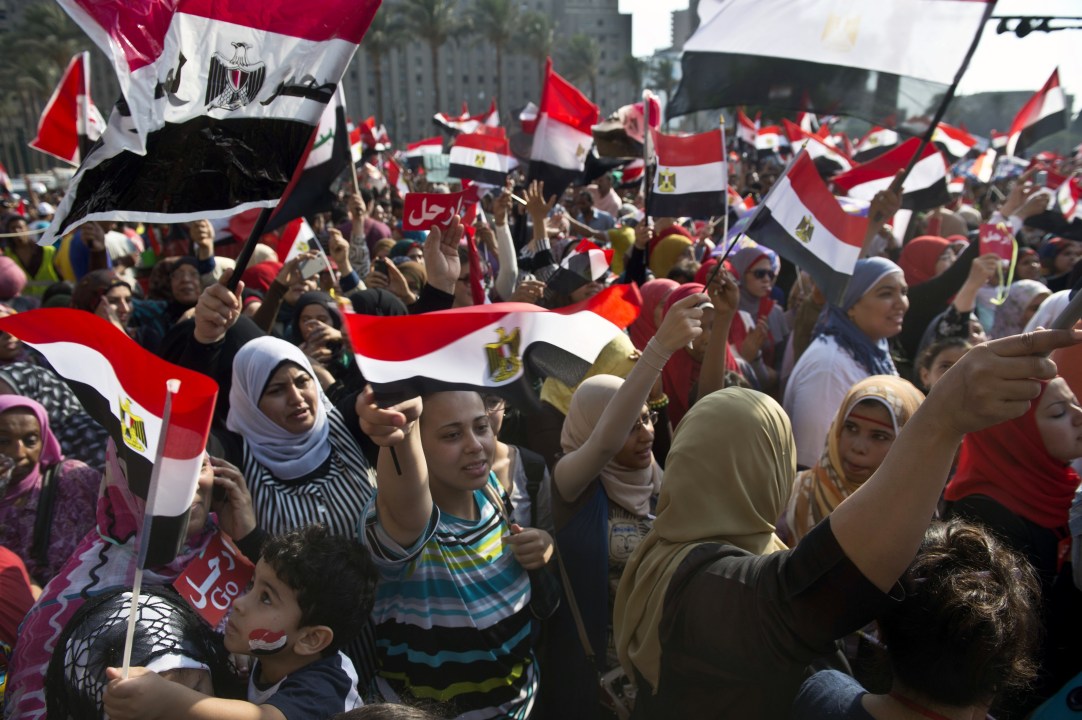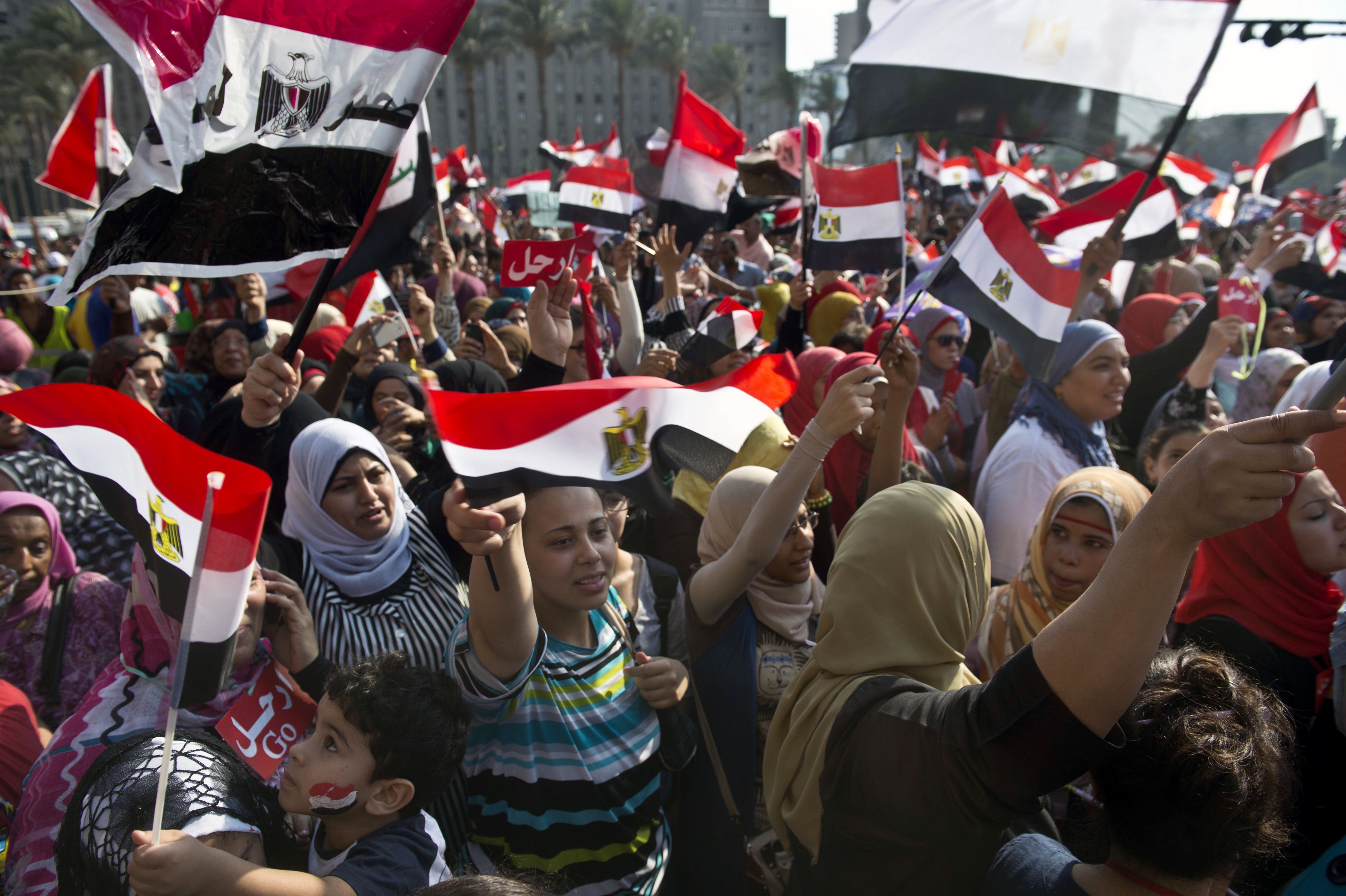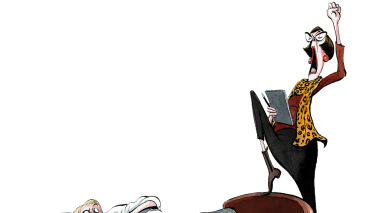The long lazy summer is upon us, and as I walk the Swiss hills below the mountain ranges my thoughts are always of the past, the long hot summers of long ago, girls in their pretty dresses, my father in his whites sailing around the Saronic Bay with a ball-and-chain standard flying from his main mast. It meant ‘Wife on board’, which really meant: when I drop anchor in some nearby port, local talent should stay away. Dad was famous, infamous rather, for flying that ensign, because he loved partying with loose women on his boat, and, during the rare occasions my mother would come on board, he didn’t want to embarrass her with the inevitable visitors. After his death, I would drop anchor at different islands and people would ask what happened to the flag. ‘Unlike my father, I am monogamous,’ I’d lie, and they’d invariably answer, ‘If only you could be half the man he was…’
Yep, that’s how it was long ago. How did Browning put it? ‘God’s in His Heaven; all’s right with the world.’ The trouble is nothing’s right with the world. Every time I open a newspaper all I see is Muslim faces, their mouths wide open with rage, screaming and shaking their fists. I recently read a profile of a man called Hirschman, a planner, as the technocrats would call him, but a man of extraordinary talents and foresight. A German Jew, he fought with the French in the second world war, and afterwards wrote about economic development in a literary style, not with mathematical formulae and other types of jargon. His motto was, ‘I want to prove Hamlet wrong.’ That is, Hamlet should not have been frozen by his doubts, but freed by them. Doubt is a motivating freedom that liberates agents from their dependence on needing to know everything before acting.
So how did we get to Hirschman and all those enraged Muslim faces? Easy. The angry ones seem not to have a scintilla of doubt in their stupid bearded faces, just a simple 110 per cent belief that the Prophet is going to send them to heaven where 72 virgins and lotsa pilaf are waiting for them. What fools these fools are. I’ve yet to meet a virgin who was good in bed, so what the hell are they getting so excited about. (And rice constipates.)
These jerks should try to read Hirschman and his theory of doubt. Instead, they embrace rulers who claim to represent the Prophet or his progeny. In return they get an education that teaches them to be ignorant, intolerant, stupid and one step away from the apes (and I apologise to the monkeys for the comparison). They are absolutely no better than or different from the hated fanatical Zionist settlers who are stealing Palestinian lands and shoot at Palestinian children picking olives from lands that have been taken away from them with American arms.
Funny, but most fanatics have beards, something that should be outlawed in the West, but then the West now has the power and commitment that Byzantium had in 1453. Even demanding that Muslims adjust to core Western values such as freedom of expression is seen as racism. At least in Constantinople in 1453 resident Muslims were not allowed to cheer openly for the downfall of Constantine Paleologos, which came soon enough that very same year.
Egypt is now Somalia, as are Libya, Iraq, Yemen and, of course, Syria. This is all due to our lack of doubt as to whether we are right in backing ‘freedom’ fighters. I was among those rooting for the scum that has replaced Qaddafi. (Mind you, I know about women and sport; geopolitics is not my bag.) Defence of national identity is equated with racism, all thanks to those nice crooks in Brussels. Can you imagine that we Europeans, who have given everything that’s worth having in this world, have to take orders from a clown like José Manuel Barroso, that Portuguese fat slob and head of the European Commission, whatever that means. Oh, I almost forgot, Turkey is also doing well — Erdogan could teach Assad a thing or two about repression — as is Brazil, the country of the future, for ever.
Thirteen billion big ones are being poured into football stadiums to host the World Cup next year, and an additional 12 billion smackers for the Olympics in 2016. In the meantime, the mayor of Rio has bragged that not one penny is being spent on public transport. The Cariocas can walk or samba to wherever they’re going. Bands to help them along are cheap, sometimes even free of charge. The Brazilian government is the most hated institution in the country. Its crimes include money-laundering, bribery, drug-trafficking, kidnapping and homicide. But the fat man in Qatar tells us that Assad is the worst man on the planet, and that he and his great country, which has given the world mathematics, philosophy, tragedy, science, medicine and the art of war and also football — according to that other fattie, Sepp Blatter — should be listened to with great respect.
Yep again, the profusion of colours and scents on this beautiful summer morning makes one feel good about oneself and the world in general. It’s great to be alive, still, as long as one’s on one’s boat or in the Alps. Everywhere else sucks.








Comments